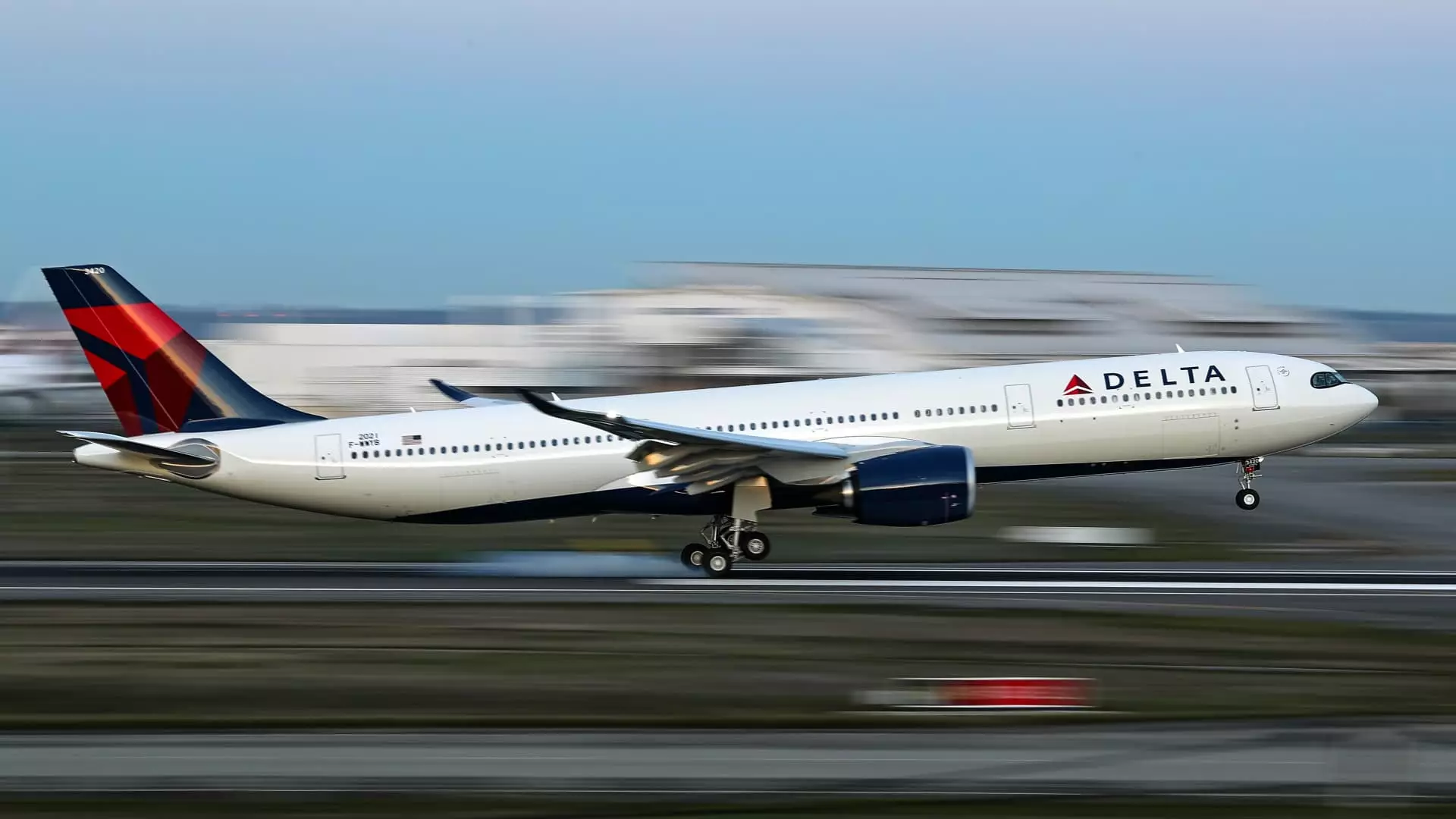In today’s aviation landscape, airlines are caught in a paradoxical tug-of-war: the relentless pursuit of higher margins through luxury offerings versus the pressing need to adapt to economic realities and evolving customer expectations. Delta Air Lines, one of the most profitable and innovative players in this space, is now contemplating radical shifts in how it markets and structures its premium cabins. Yet, such strategic shifts risk undermining years of painstakingly cultivated customer loyalty and the very perception of quality that the airline industry has painstakingly built. While Delta’s focus on segmented luxury appears to be a logical response to current demand trends, it may simultaneously be a perilous gamble—one that could lead to a diminution of the very essence of what premium travel should represent.
The airline’s effort to experiment with a wider variety of premium seats—ranging from more affordable options with fewer amenities to potentially larger, more customizable seats—signals a fundamental gamble. Historically, premium cabins have thrived because they offer an aspirational experience, a promise of comfort, exclusivity, and service. Diluting this experience for the sake of catering to a broader demographic risks transforming luxury into a commodity, eroding its allure. It’s worth questioning whether such segmentation truly empowers consumers or simply commodifies their desire for comfort, ultimately undermining the premium brand identity that airlines have fought so hard to uphold.
The Economics of Luxury: Profitability vs. Dilution
Delta’s focus on premium cabins’ profitability reflects a more straightforward issue: the economics of airline operations in the 21st century. The fact that revenue from business class seats has increased while economy struggles speaks volumes about market segmentation and consumer willingness to pay for perceived value. This trend favors airlines willing to innovate in their higher tiers, which have proven to be more resilient in times of economic downturn. But at what cost? Is the pursuit of higher-margin premium offerings sustainable in the long term, or is it a short-term fix that risks alienating core customer segments?
Moreover, the idea of introducing cheaper, stripped-down premium seats raises fundamental questions about brand consistency and customer trust. Airlines like United and American have begun experimenting with new configurations, but these are often narrowly tailored and don’t threaten the luxury narrative. Delta’s consideration of a more flexible product line could blur the lines between true luxury and an economy-plus experience, ultimately diluting the distinguishing features that set premium cabins apart. The danger here is not just in lost revenue, but in the erosion of brand prestige—an intangible asset that is often more valuable than any fare.
The Future of Luxury: Innovation or Obsolescence?
Delta’s reluctance to detail specific plans regarding premium cabin changes signals uncertainty, but the underlying message is clear: the airline is aware that its current premium offerings may soon become outdated. This acknowledgement raises an unsettling question: are airlines merely updating their products to stay relevant, or are they diluting the very concept of luxury in the process? The current trend suggests the latter—an industry that’s determined to keep up with competitors by offering more “experiences,” rather than genuine quality.
Yet, this race towards innovation must be carefully calibrated. Virgin Atlantic’s “Retreat Suite,” for example, offers a glimpse into the potential future—luxurious, adaptable, and designed for intimacy. Such offerings do not merely satisfy travelers’ needs; they elevate the entire concept of what premium could be. The danger for Delta—and the broader industry—is that in trying to please a wider audience with more options, they may end up satisfying no one truly. The core ethos of premium cabins is rooted in exclusivity and impeccable service, qualities that are inherently difficult to scale without losing integrity.
The Broader Implications: A Center-Right Perspective on Airline Evolution
From a centrist liberal perspective, the current trajectory of airline strategy encapsulates a broader societal debate about equality, accessibility, and the commodification of experiences. While it’s understandable that airlines seek to maximize profits in a competitive environment, they must recognize that expensive premium cabins are not just products—they represent aspirations and perceived social status. Efforts to democratize or “segment” these offerings risk undermining their symbolic value and could contribute to a more unequal travel landscape.
Furthermore, airlines have a social responsibility to maintain standards, not merely to chase profits. Innovation should not come at the expense of quality or customer trust. Instead, airlines should invest in elevating the entire travel experience, ensuring that premium cabins remain symbols of true luxury. The industry’s future lies in thoughtful differentiation, not in reckless expansion or superficial personalization. Fostering a transportation environment that values both accessibility and excellence is essential for the long-term health of the skies.
In the final analysis, Delta’s current exploration of new premium cabin concepts offers both opportunity and peril. As the airline industry evolves, so must our expectations—demanding genuine quality over fleeting trends and recognizing that true luxury is about more than just seat size or price tags; it is about trust, exclusivity, and the unwavering commitment to excellence.

